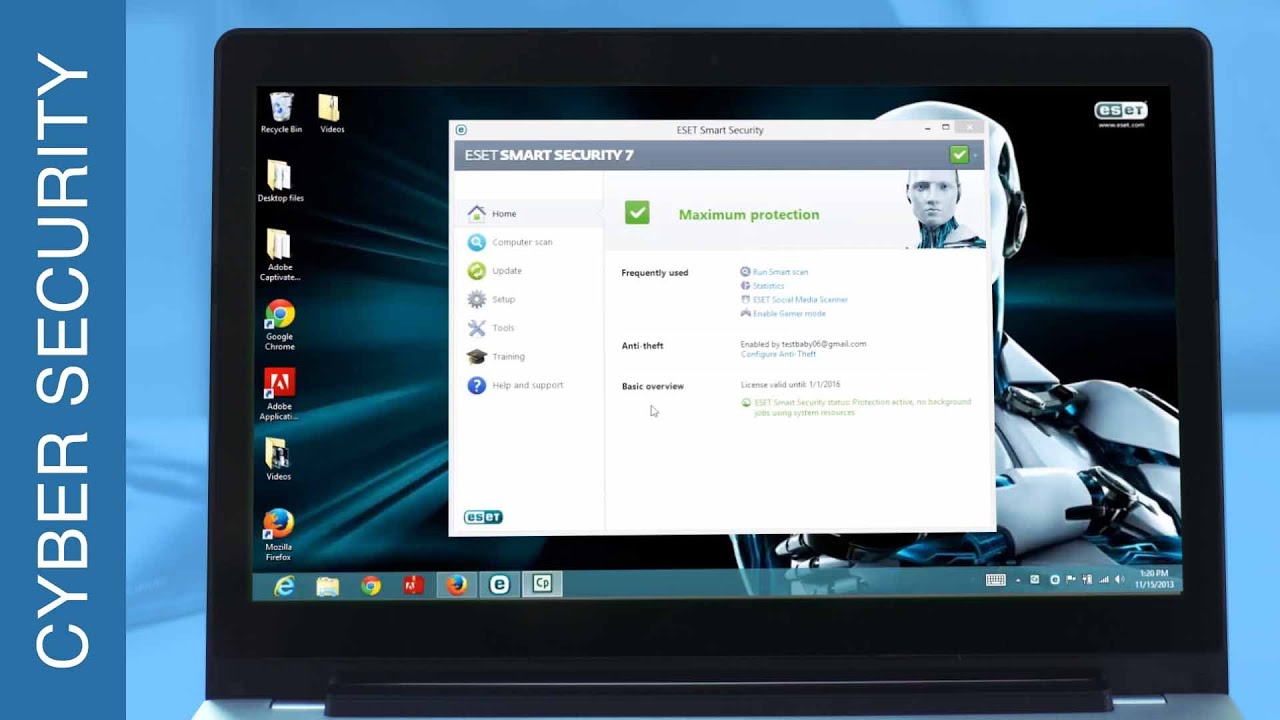How to choose the best antivirus software for you – Part I
Every smart PC owner knows that one of the most important features he / she needs for their computer / laptop is a good antivirus software. But how do you know which one is the right one for you? The answer may be a complex one, since PC users have many different levels of security needs. According to Norton’s website, if you plan to use the Internet sparingly, you’ll have different needs than someone looking for the best computer antivirus software for gaming. And those who do all of their banking online may have different needs than those who need child protection filters. And those who stay up to date on the most current security threats can use different tools than someone who is rather likely to fall for them.
Many different companies claim to have the best PC antivirus software out there, making things even more complicated. Most PCs begin their life with a certain security program installed, and customers must pay to continue the service. One thing is completely clear: A PC user should not go without using an antivirus program.
According to lifewire.com, the first step you should take is narrow your options based on the operating system you use. If you’re planning to upgrade in the near future (or downgrade), take that into consideration as well “Second, assess how you use your computer. Are you a heavy Web surfer? A gamer? Have an older computer? How you use your computer will dictate the level of protection you need. For example, a gamer will appreciate antivirus software that recognizes when games or media are being played and suppresses any non-essential alerts or activities. Someone with an older computer will likely need to be concerned with system impact and performance, as well as facing the added challenge of finding antivirus that supports the older operating system,” Mary Landersman.
The choice of the Best Antivirus depends on the personal needs and preferences of the particular user. Some antiviruses exceed at being fast and efficient, those are well suited for laptops and older computers. Some are easy to manage, those are well suited for new users. Some have lots of additional features like secure payment processing, browser protection etc. and some have a very good value to price rating. You can think about getting a free or a paid version.
One can understand why you would choose a free version, but a paid version is easier to install, doesn’t have advertisements attached to it, updates simultaneously, automatically using the latest virus information and offers additional features such as parental controls. Paid virus protection systems often include useful extras such as backup and recovery tools, useful if your PC crashes, and performance enhancement utilities that ensure that your laptop or PC are running at their most efficient. There is also the advantage of high quality customer support and technical back-up, often lacking in free software versions.
Coming back to the steps you need to take, lifewire.com, says that after narrowing down the list to those that meet your operating system and usage needs, you should check the major certification and testing agencies to see how the antivirus scanners fare. Agencies include VB100%, Checkmark, ICSA Labs, AV-Test, AV-Comparatives, and NSS Labs. Any antivirus scanner worth consideration should be listed by most of these antivirus testing agencies. “Fourth: detection, detection, detection. While you’re checking for certification, be sure to check out the test scores. Pick the antivirus software that consistently delivers the highest detection and proactive protection scores. After all, this is the only reason you’re getting antivirus software – to prevent and detect viruses. Fifth: last but not least, evaluate. Narrow the selection down to 2 or maybe 3 antivirus scanners, then proceed to test each one,” concluded Mary Landersman, for the website.
Other questions you should ask yourself first are: Does this software update automatically or scan in real time?, Does this software come with other features?, Can your computer support the security software?, Is the software rated or recognized by major publications or sites?, Do you visit spammy sites (such as gaming sites), or do you practice safe surfing?, Do you update your computer frequently? Norton Antivirus tries to help you answer some of those questions and explains why they are important here.
Moving on, you should pay attention to the features you want your antivirus to contain:
Ransomware protection: Some antiviruses come with ransomware protection. You select some files and documents to protect in case of a ransomware attack. Afterwards, the ransomware won’t be able to encrypt the blocked files.
File shredder: The standard “Delete” + “Clear Recycle Bin” won’t actually delete a file from your hard drive. It will just make it invisible for you to see. But these files can be recovered with a specialized program. In normal circumstances, these invisible files disappear only after being pushed out of their memory block by a new ones. But file shredders destroy them completely and leave no trace of them on your hard drive.
Firewall: Some AV’s can filter and scan your internet traffic to detect incoming threats before they reach your device.
DNS Protection, Password Managers, System Optimization, Phishing protection, Antispam, Browser protection.
End of Part I

